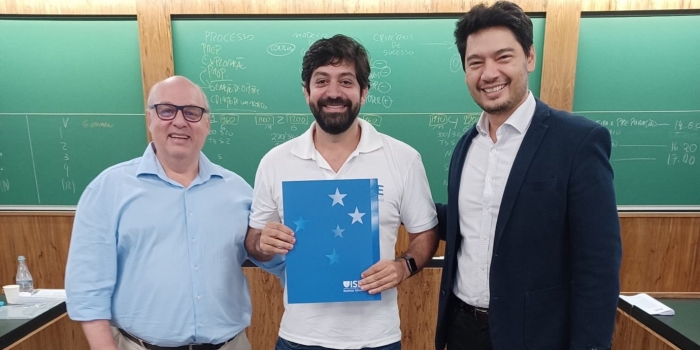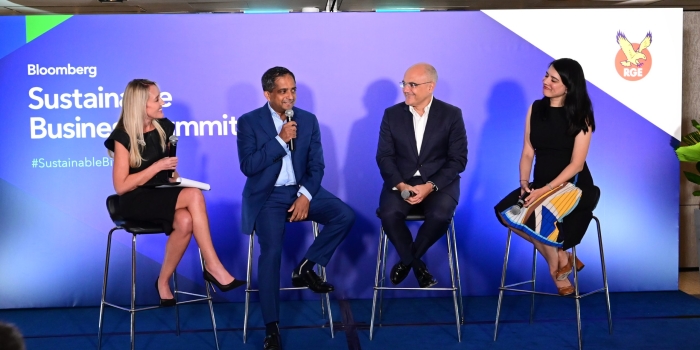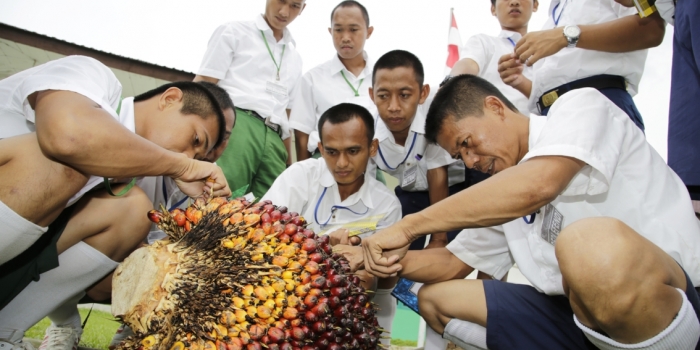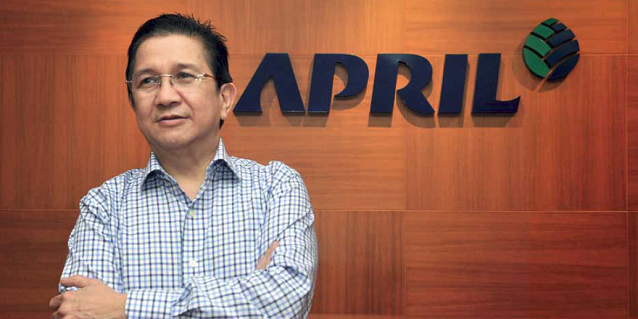When Leonardo Oliveira joined APRIL Group in 2018, he knew exactly what to expect. He had visited the company’s operations in Sumatra from his native Brazil in 2016 but the timing didn’t quite work, and he ended up working elsewhere in Indonesia.
When he got the call from APRIL 18 months later to discuss a role as Pest and Disease Regional Manager, he jumped at the chance.
“I’d visited APRIL before and I knew that R&D is very well respected in the company, and that top management are very supportive,” he says. “I think for most researchers, this is quite interesting.
“You see your recommendations being implemented in the field, and that doesn’t happen at some companies, so I knew that I could contribute a lot.”
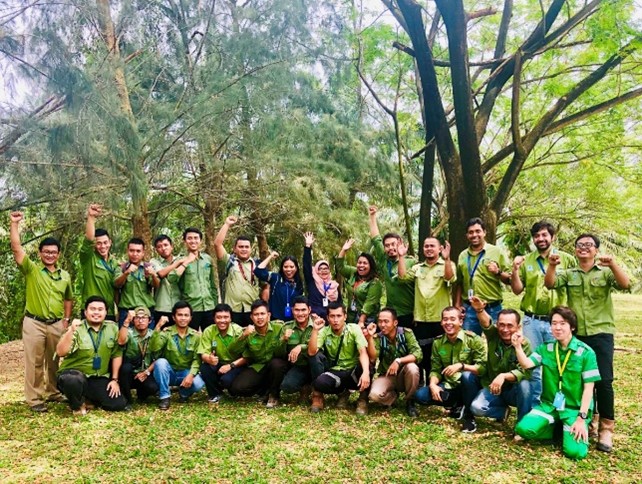
Leonardo Oliveira with the Plant Health Team in Kerinci, Indonesia, where R&D is well supported by top management.
His role covered two main areas: Leonardo’s team would monitor plantations for pests and diseases, then make recommendations to the operations team on how best to respond. And as a programme leader in plant pathology, he would lead research into better understanding of forest diseases to devise more effective ways to prevent and treat problems that can impact plant health.
With a PhD in plant pathology, Leonardo was already an expert in the subject matter and technical skills. But it was his soft skills that really got the chance to develop at APRIL.
“When I arrived in Indonesia, I saw things differently and I wanted to change everything,” he says. “I saw many opportunities and I said, okay, I can change this and that, and I wanted to do it as fast as possible.
“But of course, people were not happy with that. That was the first lesson. You need to get to know people, then they will get used to you and then things will happen. Once I got used to the culture, things began to flow much better.”
After two years at APRIL it was time to return to Brazil to take up a role as Silviculture Research Manager at Bracell’s operations in Bahia. A promotion followed in 2023 to Senior Manager in the R&D department, leading a team of around 100 people, but those lessons in soft skills continue to play a big role in Leonardo’s approach to management.
“I almost had to relearn how to work with my own people,” he says. “In Indonesia if you give clear direction then people will generally go ahead and execute very well. But in Brazil we like to question things more, so it’s not so simple as just giving directions. I was able to take what I’d learned in Indonesia, particularly around discipline, and use that with my team here in Brazil.”
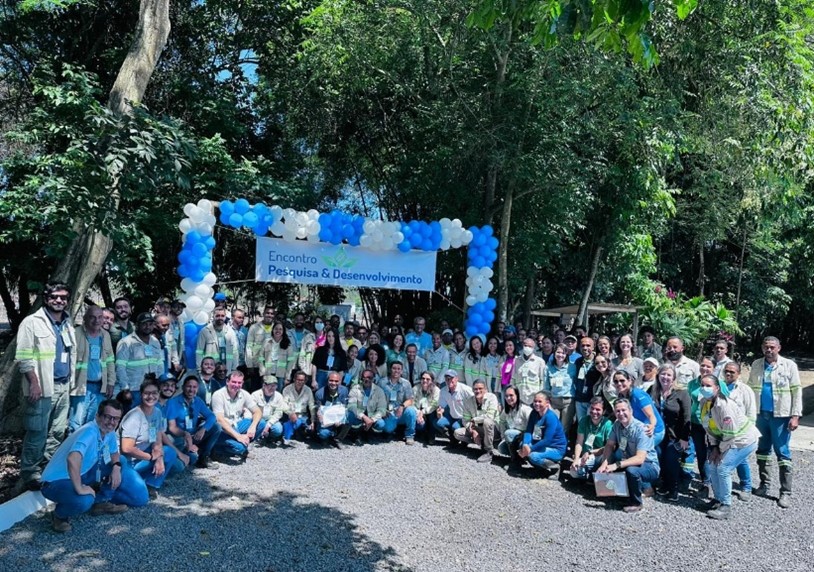
Leonardo with his Forestry R&D team in Brazil, where he works as Senior Manager, bringing technical expertise and soft skills acquired from his time in Indonesia.
It’s not just on the job experience that has helped Leonardo develop his skills at RGE: he’s also had the opportunity to take part in formal training including our Manager Training Programme and our Future Leaders Programme, taught at ISE Business School in São Paulo, Brazil.
“When I first joined the company I had a lot of technical knowledge, but I think my soft skills still needed work. These programmes taught me soft skills but also things I didn’t have much exposure to before, especially subjects related to finance and HR. I really believe this helped me a lot in becoming a better leader.”
Those leadership skills were brought to the fore when Leonardo was given the chance to help set up an internal programme called SilvCorp to share best practices in R&D across RGE’s business groups, bringing together expertise from around the globe to get better results.
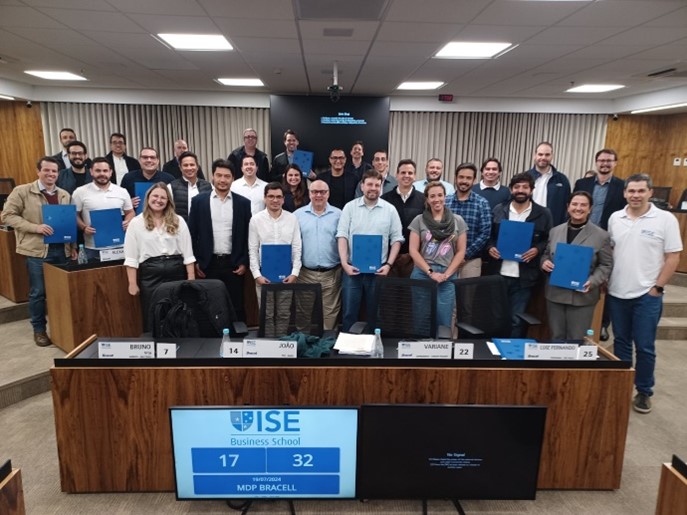
Leonardo at the ISE Business School in São Paulo, Brazil, where he took part in the Manager Training Programme and Future Leaders Programme.
But it’s his work to give job opportunities to people in local communities in northeast Brazil that he’s particularly proud of. “We’re facing a problem where a lot of young people are not interested in working in forestry anymore. They want to go to big cities.
“We have to develop people from areas where the company operates, setting up internship programmes, working with local universities. We’re developing these people and we are seeing really, really good results.
“The retention rate is much higher; people are staying with us. More importantly, we’re helping provide economic opportunities to local communities in less developed areas. That’s a good feeling,” he says.
This is life at RGE.
Find more opportunities to apply knowledge across borders with RGE here.



